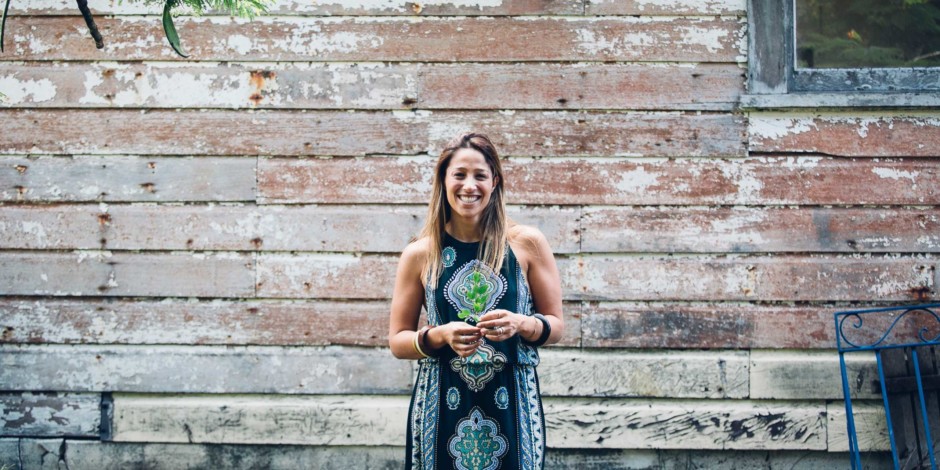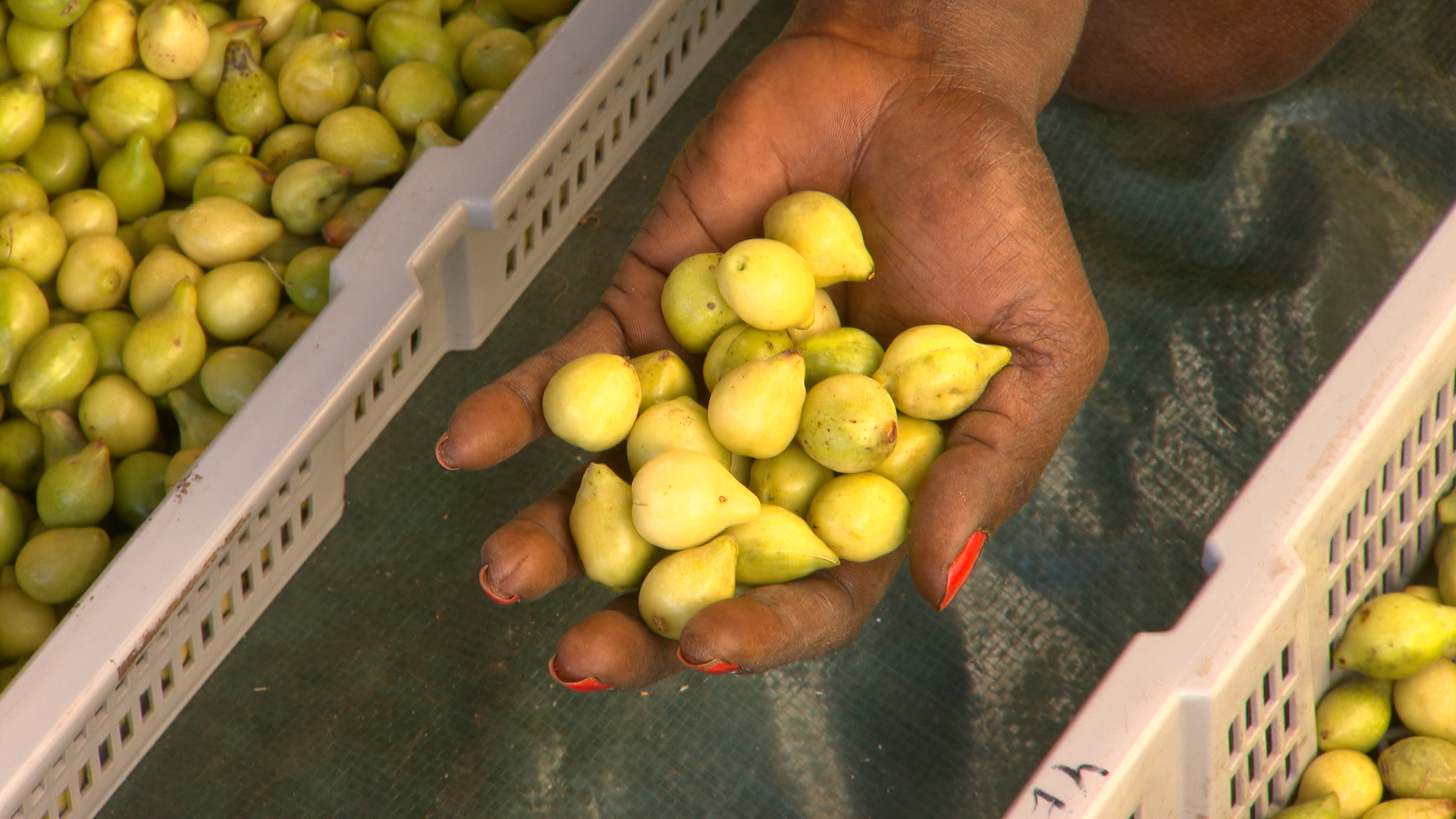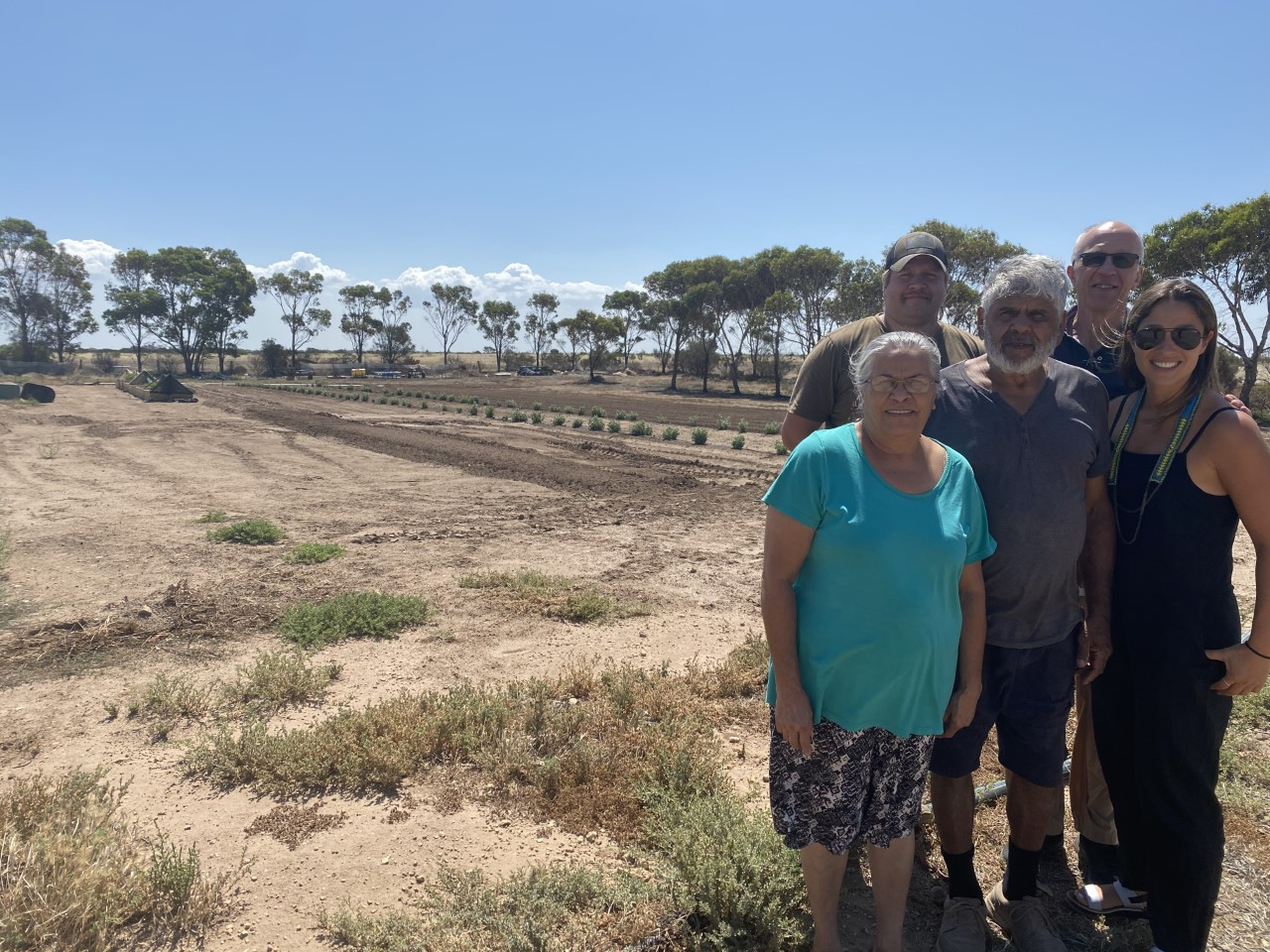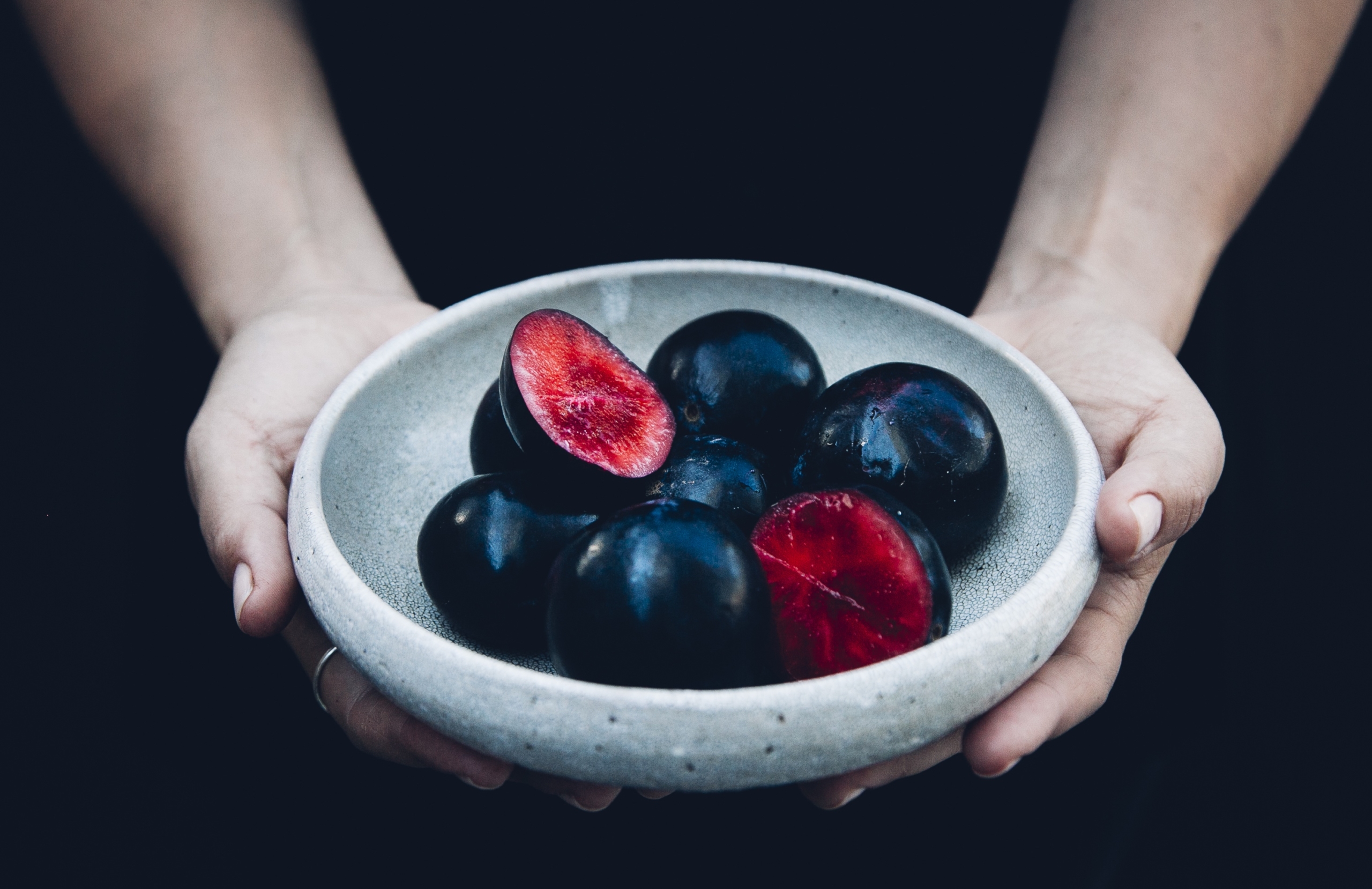Ripe opportunity for Australia's native bush foods industry
Hayley Blieden, founder of The Australian Superfood Co is helping to cultivate a growing appetite for Australian native foods with the launch of the Native Harvest Initiative, designed to support Indigenous communities, local growers and scale native produce supply.

Watching contestants in MasterChef Australia 2020 hero native ingredients like Strawberry gum, Davidson plum, saltbush and wattleseed was a pivotal moment for the emerging industry and Hayley Blieden’s business, The Australian Superfood Co.
In 2015 when Hayley launched her food startup, specialising in native fruit powders, herbs, spices, freeze-dried fruit, extracts and granolas, people were inclined to think Australian native foods were Vegemite and lamingtons, and mistake quandong for a swear word.
Guest chefs were putting lemon myrtle in a Mystery Box and MasterChef contestants were working out what to do with ingredients they’d never seen before. Fast forward to this year’s winning dishes of compressed choux with Strawberry gum and rhubarb and bonito with riberry and saltbush.
“Many of these native ingredients are now kitchen staples and are incorporated in products like chocolate and kombucha,” said Hayley, managing director, chief dietitian and founder of The Australian Superfood Co.
“People are loving the cultural relevance too, of foods that have kept our Indigenous people alive for more than 70,000 years.
“As a dietitian, I’m passionate about the nutritional benefits. Products like Kakadu plum have the highest Vitamin C content of any food on Earth.”
But with a range of nutritional powders and extracts rushing off the shelf in online sales, how does the supply of a mostly wild-harvested product keep up with demand?

Farm diversification key in expanding native foods supply
In July The Australian Superfood Co launched the Native Harvest Initiative (NHI), to encourage Indigenous communities and non-Indigenous farmers to grow and supply native ingredients, opening the door for diversification.
“Demand has never been higher for native Australian ingredients – both locally and around the world – but this will soon outweigh supply and we want to address this imbalance,” said Hayley.
“The Native Harvest Initiative, established with the help of a team of agronomists and propagators, will provide a range of specialty services and support to Indigenous communities, assisting growers and farmers to expand, diversify and/or re-purpose their crops.”
The Australian Superfood Co is already sourcing produce from Indigenous communities and producers in the Northern Territory, Western Australia, South Australia and Victoria, with the balance of product supplied by non-Indigenous farmers from every state.
Hayley is focused on opening the eyes of non-Indigenous farmers to native foods, like the blueberry grower who recently enquired about producing a native food option.
“In that example, riberries would be fine to grow alongside blueberries. Under the NHI, agronomists will test the soil, assess the amount of sunlight and water and give advice on what to grow, and we may supply cultivars as well,” she said.
“This is not yet a well-established market and farmers just want an assurance that someone will purchase the crop at harvest, which the National Harvest Initiative can offer.”

Pictured (right to left): Hayley Blieden, Ralph Wollner, Daniel Newchurch, Ron and Liz Newchurch
She was delighted to hear of the Indigenous farmer Ron Newchurch in South Australia, a producer of spring onions for Coles, and his grandson Daniel Magazin-Newchurch who recently decided to ‘flip’ the entire crop to native foods.
“Here is the next generation farmer who has the pride and the passion to incorporate his Indigenous culture into his farming, but he also has the knowledge to ensure crops are Freshcare certified for supplying to the major supermarkets,” Hayley said.
“The industry has to progress from a culturally sensitive standpoint too, and hopefully Indigenous groups and governments can build some sort of protection around that.
“As a company with a social impact focus, the Australian Superfood Co is working with recognised not-for-profit organisations like Red Dust Role Models, to improve the educational standards of Indigenous children and promote employment in their communities for the long term.”
How to cultivate native bush foods for large-scale production
While nutritional properties appear to be higher in wild harvested produce, Hayley said they are more at risk of natural disasters. So can native ingredients be successfully cultivated using current large-scale farming practices?
“They can, and there are communities, experimenting with modern farming techniques because they know they have to guarantee supply if the market is to reach its full potential. For example, it’s estimated only 10% of Kakadu plum is currently being harvested,” said Hayley.
“There’s a real opportunity for government bodies to help farmers diversify or re-purpose their properties. There’s no reason why they wouldn’t grow native foods, considering they’re adapted naturally to Australian conditions – they use less water, less pesticides, less fungicides.”
Hayley can empathise with the stressful demands of supplying a food market with a wild harvested product, having had to pivot her small startup company in the early stages of development.

“In 2015 we started out making raw food bars from native ingredients, but we found that the customers were more interested in the stories behind the ingredients rather than the bars,” Hayley remembered.
“We pivoted to become an ingredient supplier of native produce in bulk quantities to the food and beverage market and now we work with large multinationals, who can invest the marketing dollars to promote their native food ranges.
“We’ve developed great relationships and learnt a lot from them. We are HACCP certified [used to manage food safety risks] and halal and kosher certified.
“These programs provide the quality control to ensure our customers can safely incorporate these ingredients, at the same time as we work towards our goals of increasing awareness and acceptability of native food and leveraging the size of the industry.”
‘Huge’ demand for Australia’s native bush foods locally and globally
This year’s challenge, Hayley said, has been supplying the demand sparked by MasterChef and weathering the longer-term impact of COVID-19.
“We’re fortunate that we can hold large inventory stores by outsourcing to a freeze-drying contract manufacturer, who takes the fruit that’s been snap frozen at picking and puts it into his drying machines for about five days.
“Freeze drying is a fantastic technique, it maintains the nutritional value as well as flavour and colour in a shelf-stable product. The finale of MasterChef was a huge boon that saw our website crash but we were able to maintain supply.”
At the same time, food service doors slammed shut when Australia was locked down due to COVID-19.
“It was scary and devastating, how quickly it impacted – the orders just dried up,” said Hayley.
“But all of a sudden people were looking to boost their immunity and health through nutritional supplements and we had companies doing new product developments that they wanted to get out really quickly, so incorporating Australian native foods in that sense was really exciting.”
She said there is ‘huge demand’ from Southeast Asia and America for nutritionally dense foods, and believes we can learn from the success of the latest superfoods to come from Brazil and China, the acai berry and camu camu.
There are plenty of Australian ingredients that haven’t been tried or tested for nutritional properties so there’s a lot of work still to be done, said Hayley.
“There are over 5,500 edible native Australian ingredients and we’re currently using about 20!”
Find more information on Australia’s emerging native foods industry here.
Enjoyed this story? Want to learn more about the Asia Pacific region’s innovative agrifood tech ecosystem? Sign up for our newsletter here and receive fresh stories about global leaders, farmers, startups and innovators driving collaborative change.
